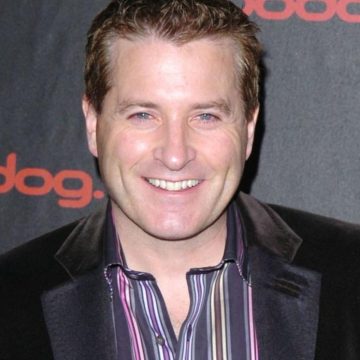
Calvin Ayre settled his 5-year legal case with the United States government this week. All felony charges on Calvin Ayre were dropped, while he can reaquire control of the Bodog domain with a nominal fee.
Though Calvin Ayre sold his Bodog business to a Canadian tribal gaming group over a decade ago, the US government claimed his licensing of the Bodog name constituted illegal gambling operations. In 2012, the US Department of Justice seized Bodog.com and $66 million in funds from Bodog-aligned payment processors.
In a plea bargain with the federal court of Judge Catherine Blake in Baltimore, Calvin Ayre pleaded guilty to “accessory after the fact” and agreed to a $500,000 fine. He also agreed to one year of unsupervised probation and to renounce claim to $66 million the US government seized in 2012.
Calvin Ayre’s Bodog Career
Calvin Ayre founded Bodog in 1994 as an online consulting business. In 2001, he stopped consulting with online gaming sites and began accepting real money players. In 2006, Ayre sold Bodog’s gambling business to the Morris Mohawk group in Kahnawake, Quebec, but retained the brand name and original domain.
During his five years as an online gambling operator, Bodog became one of the most famous iGaming sites on the Internet. Bodog offered online sports betting, poker, and casino games. Because Mr. Ayre was interested in music and entertainment, the Bodog site also featured bands and musicians the gaming mogul supported. The site used both proprietary and licensed software, providing gamblers with a one-of-a-kind online gaming experience.
Because he licensed the Bodog name to gaming operators over the years, the U.S. government indicted Ayre with charges of illegal gambling and money laundering. The Feds claimed his crimes stretched from June 2006 to January 2012, when the Justice Department seized control of the Bodog domain. Since that time, the site has a DOJ seizure warning.
Calvin Ayre: “We Don’t Operate in the US”
Since the 2012 indictment, Calvin Ayre maintained his innocence and called the US case “an abuse of power”. He lived in Antigua, the tiny Caribbean island nation which has had a 12-year dispute with the U.S. government over online gambing. Mr. Ayre continued to travel back to his native Canada from time to time, such as the online gambling conference he attended in Vancouver last month.
In 2016, Calvin Ayre said of the US case, “Our position has always been that we are operating legally in all of the jurisdictions that we are in. We don’t operate in the US.”
Bodog “Will Re-Enter the Gambling Market”
Stephen Stradbrooke, a writer for Calvin Ayre, said that the deal with the US government “virtually guarantees” that Bodog.com is going to do one day accept real money gamblers again. To reclaim the Bodog domain from the US Department of Justice, Calvin Ayre needs to pay $100,000, a nominal fee for a billionaire.
According to Stradbrooke, Calvin Ayre plans on reclaiming the Bodog website. The writer said that the deal has no strings attached regarding use of the site, so one of the world’s most famous online gambling brands should become active. Details of the jurisdictions the original Bodog might target have not been revealed, but Stradbrooke said Bodog “will re-enter the gambling market in some form at some future date.”
Calvin Ayre to Maintain Antigua Residence
Though he legally has no fear of U.S. charges anymore, Calvin Ayre said he does not plan to change his residence. Having spent half-a-decade in a tropical paradise, it sounds like he’s grown accustomed to the lifestyle. Though he is a Canadian citizen, Ayre retains dual citizenship in Antigua.
After news of the plea bargain broke, Calvin Ayre, “I don’t see this settlement changing anything, as I’m happy with my life the way it is. I’ll continue to focus on being an online gaming industry analyst, a tech investor, and a philanthropist. Most importantly, I’m just going to continue enjoying life to the fullest.”
In recent months, Calvin Ayre has become an outspoken supporter of the bitcoin and blockchain technologies. Ayre bankrolled reputed bitcoin founder Craig Wright’s move to secure over 70 blockchain patents filed with the UK government.
Mr. Ayre also said at the Vancouver gaming conference in June 2017 that bitcoin deposits and withdrawals are the future of online gambling payments, while the blockchain technology might eventually make regulatory authorities somewhat obsolete in the Internet gaming industry, because of the safety, security, and privacy that bitcoin-style payments foster.















